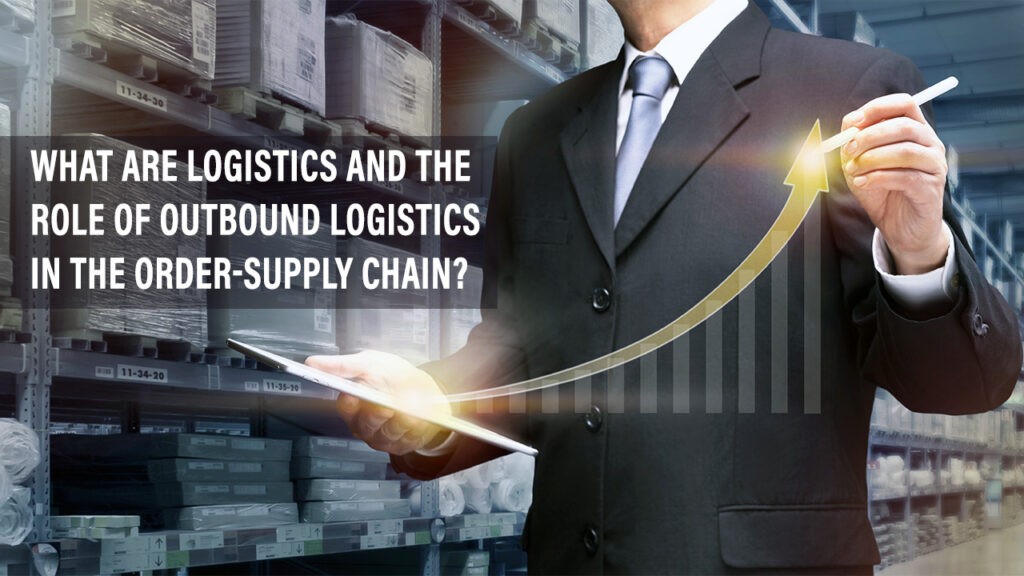Logistics is quite a popular term when it comes to the 21st-century business world. According to Wikipedia it simply means “the management of the flow of things between the point of origin and the point of consumption to meet the requirements of customers or corporations”. It includes coordinating the movements and storage of different transported materials starting from mechanical equipment to consumable items. This process is the very spine of today’s business world. A well-planned and well-tracked supply-demand chain is built upon the logistics which can consequently benefit your business in many ways.
The “supply” part of the supply-demand chain is known as inbound logistics which deals with gathering and efficiently supplying the required materials to the manufacturer. On the other hand, outbound logistics deal with the other half of the process; which includes demand and distribution. In the cutthroat world of business, appropriate distribution and on-time delivery of the final products add to the image and reputation of the company in a competitive market.
As much as the quality of the product is important, you also have to keep in mind the packaging, shipping, correct delivery, and customer service. Fulfilling the consumer’s expectations while maintaining a reliable tracking system doesn’t come cheap. The whole process of order delivery depends both on the market’s carrier capacity and data management through keeping inventories.
Here are a few steps that partake in managing effective outbound logistics:
STORAGE MANAGEMENT:
To keep up with the customer demand and not to be caught off guard with high demand and less supply of products a company should always secure a certain amount of goods available in the warehouse. The company’s own managed warehouses are the best option in this case where the company itself can control the shippings and loadings as well as adjust to the fluctuating labor costs. It’ll enable you to control the speed of operations and customize it conveniently. Depending on third parties for warehousing can put unnecessary pressure on the company.
BOOKKEEPING / INVENTORY:
An organized and profitable business is impossible without efficient bookkeeping. However, today we have many digital tools available to make inventory management agile and easy. Starting from order accuracy to the management of shipping period and delivering at the right place at the right time needs good management of data. By using a cloud drive for data storing, establishing an integrated and secure logistics system you can optimize the tracking and manage the information in a logistic company.
FREIGHT FORWARDING / TRANSPORTATION:
Of all the options at our disposal choosing the appropriate mode of transportation suitable for the type of goods and need of the consumer influences the whole process heavily. The items that are solid and heavy can be transported by trucks or ocean freight while delicate and perishable items may need transportation by air crafts. This step will save money, time and also minimize the spoilage of goods.
FIRST-HAND DISTRIBUTION:
Here is where we have to deal with the complex part of the system. Now that the goods are done with the long journey overseas, they are to be again checked, packed individually, and start for the final destination. This step includes connecting to the different distribution channels, retailers, and wholesalers. It is of utmost necessity to be familiar with the ways of these channels, maintain clear communication with them to work in collaboration. You need to know their on-field service procedure, the digital or mechanical tools they use to ensure an efficient distribution route to judge their performance.
CUSTOMER CARE SERVICE:
More than often the companies lose customers because of the unreliable or unresponsive customer care service provided by the logistic companies. It’s good to set up a competent team to keep in touch with the customer and maintain a visible tracking route.
FINAL DELIVERY:
It’s the last step in the origin of the consumer journey of the order. It’s relatively costly and needs more individual efforts than all the above steps did. After the first-hand delivery, the orders are divided because here the packets need to reach individual addresses. Among the above-mentioned transportations, this one step is also deeply affected by traveling routes, traffic, and fuel consumption.
The delivery service that reaches the consumer leaves an impression for a long time whose foundation is a well-monitored outbound logistics service. At JMY Cargo, we can make things much easier for our customers by giving them 24/7 customer support service and smooth freight forwarding.

